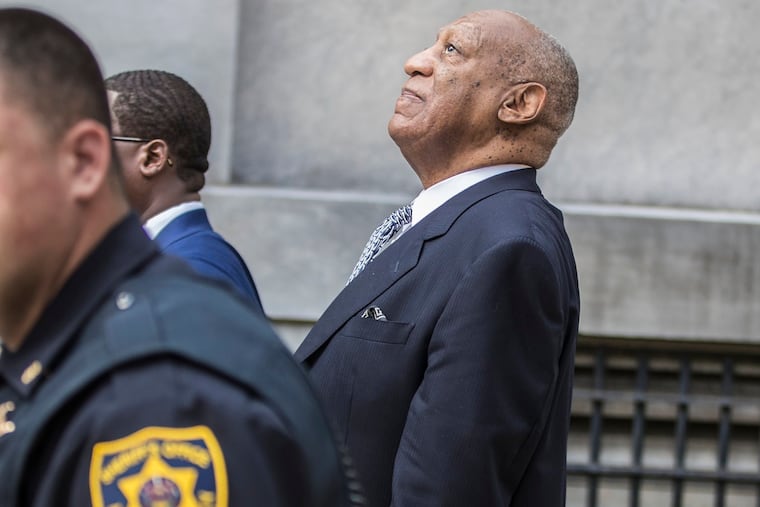Here are the issues Bill Cosby is raising to appeal his sex-assault conviction
Cosby's lawyer filed a list of 11 issues that he plans to use to suggest the entertainer did not have a fair trial.

Bill Cosby’s lawyers laid out their plans Tuesday for appealing the entertainer’s criminal case, alleging that issues ranging from a biased juror to the testimony of five additional accusers denied him the right to a fair trial.
Brian W. Perry, Cosby’s defense lawyer, filed a motion Tuesday in Montgomery County Court listing 11 issues that he intends to pursue to appeal Cosby’s conviction on three counts of aggravated indecent assault.
Cosby, 81, was sentenced in September to three to 10 years in state prison for drugging and assaulting Andrea Constand in 2004. He has been an inmate at State Correctional Institution Phoenix in Montgomery County since his sentencing.
Here are the issues listed in the filing, which will be part of Cosby’s appeal to Superior Court:
Perry alleges that one juror told other potential jurors that he thought Cosby was guilty before the trial began.
Cosby claims that prosecutors' expert witness Dr. Barbara Ziv should not have been permitted to testify because a state law allowing that type of expert testimony was not in place until after Cosby’s crime. Ziv was the first witness at the trial and set the stage for Constand and other accusers by explaining behaviors of sexual-assault victims.
Judge Steven T. O’Neill, who presided over Cosby’s trial, declined to step aside at the request of Cosby’s legal team. Perry said in Tuesday’s filing that O’Neill should have disclosed his rivalry with Bruce L. Castor Jr., who as district attorney declined to arrest Cosby in 2005 and who became a defense witness in a 2016 attempt to have the case dismissed.
O’Neill did not dismiss the case after Castor testified that he had promised Cosby would never be prosecuted.
Jurors heard Cosby’s deposition testimony from Constand’s 2005 civil lawsuit against Cosby. Cosby’s lawyers also argue that the judge should not have permitted deposition excerpts in which Cosby says he obtained Quaaludes to give to women he wanted to seduce.
O’Neill allowed five women who accused Cosby of drugging and sexually assaulting them to testify at trial in addition to Constand.
Charges were filed just before the 12-year statute of limitations on Cosby’s crime expired. His lawyers say prosecutors did not prove that the offense occurred within that 12-year period.
The instructions given to jurors allegedly were not appropriate for the case at hand.
Cosby’s lawyers argue that he should not have been designated as a sexually violent predator at the time of his sentencing.
Tuesday’s filing was one of the first steps in the appeal process; appeals can take years to make their way through the court system. Both sides eventually will file briefs to Superior Court.